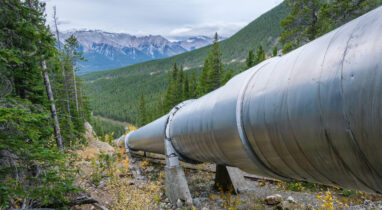The federal government’s new Emissions Reduction Plan (ERP), released today, offers an ambitious, sensible, and detailed pathway to achieving Canada’s 2030 emissions-reduction targets. The plan marks an encouraging and important step on Canada’s road to decarbonization.
The ERP rightly emphasizes the importance of collaboration between the public and private sectors in achieving our climate goals. Critical to the success of the net-zero transition is providing certainty about the direction of Canada’s climate policy, in order to give the private sector the confidence to make massive investments in decarbonization that will create hundreds of thousands of good-paying jobs across Canada.
We are especially encouraged that the ERP upholds carbon pricing as a cornerstone of Canadian climate policy. Arguably the most important new action announced in the plan is a commitment by the federal government to explore measures that will guarantee the price on carbon emissions into the future, which is essential for building private sector confidence. By adding specific examples of the measures it might take, like contracts for difference, the government is sending a strong signal that could help unlock further investment. The government should move swiftly in the coming months to deliver on this commitment.
“The ERP lays out a sensible pathway to our 2030 climate targets, but let’s remember that we’re effectively cramming for a midterm exam. The final is net-zero by 2050, and we need to prepare ourselves to ace it, while protecting our economy.”
Clean Prosperity Executive Director Michael Bernstein
In fact, the federal government should consider relying even more heavily on carbon pricing to achieve Canada’s emissions-reduction targets, especially for industrial decarbonization. Moving towards full industrial carbon pricing, paired with competitiveness protections like border carbon adjustments, could generate large reductions in emissions with fewer additional regulations and spending programs. To achieve our targets it will also be essential to ensure that provinces strengthen their industrial carbon pricing regimes to meet the federal benchmark — and that the benchmark be strengthened as well. We only have eight years to achieve the objectives laid out in this plan, so we should make the best use of the policy tools we already have.
In addition to upholding carbon pricing, the ERP features a broad range of complementary regulations and investments, many of them previously announced. Given the long list of proposed actions, it will be critical for the government to prioritize the most high-impact policies that complement carbon pricing. These include the Clean Electricity Standard, zero-emissions vehicle mandates especially for medium- and heavy-duty vehicles, and regulations to reduce methane emissions.
In the ERP, the government has proposed an ambitious emissions-reduction trajectory that will help us achieve our 2030 goals. Yet we have to remember that what matters most is achieving net-zero emissions by 2050, while keeping our cumulative emissions below critical thresholds.
To this end, it will be essential for the government to ensure that the policies enacted in the next few years set us up for the subsequent two decades. Reaching net-zero emissions will require policies like border carbon adjustments, and investments in accelerating the growth of Canada’s carbon dioxide removal sector.
“The ERP lays out a sensible pathway to our 2030 climate targets,“ said Clean Prosperity Executive Director Michael Bernstein, “but let’s remember that we’re effectively cramming for a midterm exam. The final is net-zero by 2050, and we need to prepare ourselves to ace it, while protecting our economy.”




